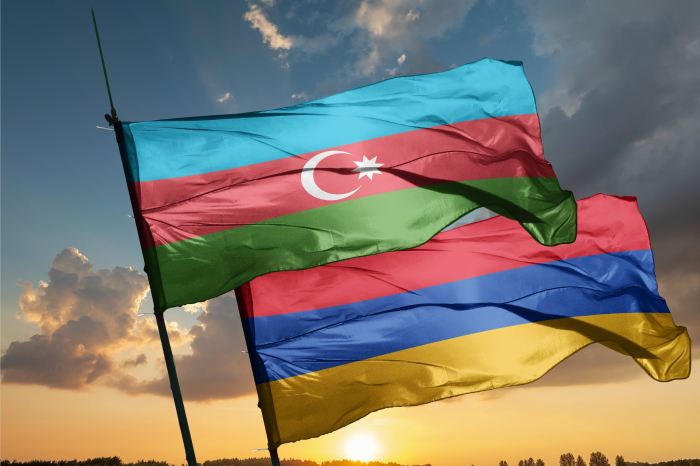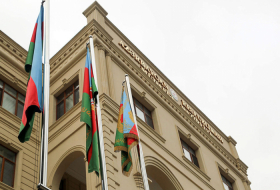2023 ended with positive notes for the Armenia-Azerbaijan peace process, but the new year has so far failed to maintain the momentum. Despite a successful prisoner exchange, and Armenia’s endorsement of Azerbaijan’s COP29 candidacy, recent statements from the respective governments have presented a mixed picture. While the Azerbaijani side has not indicated any setbacks in the ongoing talks yet, the Armenian government has criticized the recent statements by the Azerbaijani leader as unconstructive for the peace process.
Complicating matters further, disagreements have intensified regarding the possible regulations along the Zangezur corridor. The latest developments highlight a disparity in the visions of Russia, Armenia, and Azerbaijan for this corridor. Unfortunately, these developments suggest that the obstacles in the Armenia-Azerbaijan peace treaty talks may be more fundamental, potentially leading to indefinite delays in the process.
The interview of Azerbaijan’s President Ilham Aliyev with local TV channels on January 10 was the cause that sparked the extensive discussions. Despite President Aliyev’s explicit denial of any intention by his government to invade Armenian territory, Armenian officials, experts, social media users, and some Western officials fueled a fearmongering campaign, alleging Aliyev’s intent to invade Armenia. The situation escalated to the point where the High Representative of the European Union, Josep Borrel, and the spokesperson of the European External Action Service (EEAS), Peter Stano, warned Azerbaijan against such actions, threatening Baku with “severe consequences”.
What is perplexing is why European officials are joining this campaign, when it is evident that such a military operation could yield counterproductive outcomes for Baku. Leaders in Azerbaijan, being widely known for their pragmatic foreign policy approach, comprehend this reality and have consistently refuted any intentions or preparations for such an invasion. Nevertheless, the statements from Brussels, combined with anti-Azerbaijani resolutions from the European Parliament and the French Senate, have already had adverse effects on EU-Azerbaijan relations, eroding trust between the two sides.
This is accompanied by escalating disagreements among the three signatories of the 10 November 2020 trilateral statement (Armenia, Azerbaijan and Russia), particularly regarding the final provision pertaining to the reopening of regional transportation links. The statements released by each side in January underscored their divergent positions. Azerbaijan advocates for an unimpeded passage without customs and security checks for passengers and cargo through what it refers to as the Zangezur corridor, connecting the western part of Azerbaijan to Nakchivan. In stark contrast, Armenia firmly rejects this proposal, which had been otherwise envisioned in the trilateral statement.
Interestingly, Russia also advocates for customs and security checks on this route, but with a condition – insisting that Russia’s border guards oversee these measures. A similar discord arises over the responsibility for ensuring security on this route, with Russia and Azerbaijan expecting Armenia to comply with the trilateral statement and accept the deployment of Russia’s border guards. However, Yerevan rejects this provision as well. Given the opposition of the United States to the deployment of the Russian border guards, the issue turns out to be another act in the theater of geopolitical rivalries between Russia and the West, rather than a matter between the two directly involved countries.
This disagreement has evolved into a significant impediment, especially after President Aliyev’s declaration on 10 January that Baku will not consider opening Azerbaijan’s borders with Armenia elsewhere unless the Zangezur corridor is operational. This raises the question of whether Baku would be willing to sign a peace treaty with Armenia without reaching an agreement on the Zangezur corridor. Considering the current circumstances and the importance Baku places on this corridor, the answer to this question appears to be in the negative.
Nevertheless, there have been also one important development over the past month which gives a glimmer of hope that the two countries are still on the path of reconciliation. It is related to an apparent understanding between Baku and Yerevan that the remaining legal hurdles for the peace treaty should be eliminated. As it has been emphasised for a long time, Armenia’s existing constitution contains a territorial claim against Azerbaijan and Turkiye, calling for unification of Karabakh with Armenia and naming the eastern part of Turkiye as “Western Armenia”. In 2021, President Ilham Aliyev of Azerbaijan referred to this fact as a challenge to the peace efforts in the region. “There is a territorial claim against Türkiye in the Constitution of Armenia. They should abandon that. They need to revise and re-adopt their constitution… they must give up their claims against Türkiye and Azerbaijan”, said Aliyev in an interview with a Turkish media channel.
The call for a new constitution by the Armenian premier is therefore interpreted as a breakthrough to this challenge. On January 19, Prime Minister Nikol Pashinyan, explaining the need for a new constitution, stated that it would maintain the present parliamentary system. He underscored “external security” and “internationally recognized sovereign territory” as the main elements on the agenda that will be addressed in the constitutional reform. It is however likely that the process for Armenia adopting a new constitution will take a long time - another reason why we may expect delays in the peace talks,
In conclusion, the recent complexities surrounding the Armenia-Azerbaijan peace process suggest a more profound and enduring challenge than initially anticipated. Disagreements over the Zangezur corridor, exacerbated by geopolitical interests, have become significant obstacles. While a potential breakthrough as a result of the prospect of Armenia’s constitutional reform offers a glimmer of hope, the path to a comprehensive peace treaty remains fraught with hurdles, hinting at potential indefinite delays in the process.
AzVision.az
More about:
















































